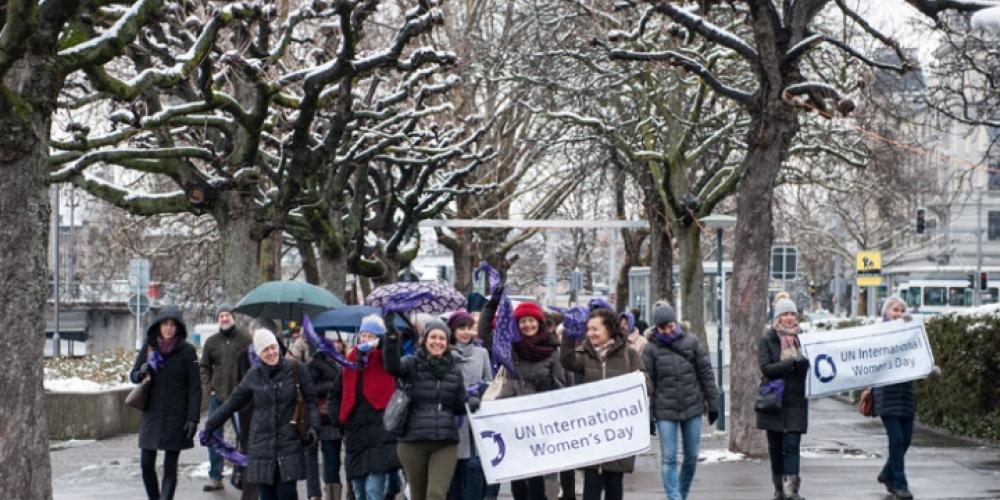
Why is change needed?
Some argue that progress has slowed in many places across the world, and that much global action is still needed to accelerate gender parity – equal rights and equal salaries for women and men, in the workforce, in education, in society, better recognition of the role of women in the family. The World Economic Forum predicts the gender gap won't close entirely until 2186. So around the world, International Women's Day provides an important opportunity for ground breaking action that can truly drive greater change for women.
And often change begins with a simple acknowledgement of some basic values that we all ought to adhere to: justice, dignity, equality, empathy, appreciation, respect, collaboration… values often disregarded in our societies, past and present.
So what gave birth to the tradition, and where?
Throughout ancient and modern history, women have collaborated and lead purposeful action to redress inequality in the hope of a better future for their communities, children and themselves. Some claim It was the Suffragettes who started International Women's Day, with the first officially named "lnternational Women's Day" event held in 1911. Suffragettes were members of women's organisations in the late-19th and early-20th centuries which advocated the extension of the "franchise", or the right to vote in public elections, to women.
Others believe the holiday’s roots lie in grassroots demonstrations for better pay and working conditions, and particularly a feminist-led protest started on March 8 in Russia in 1917. The holiday was later adopted by China and Vietnam, and is currently still a national holiday in Russia and Bulgaria.
International Women’s Day across cultures today
China: According to some international media focused on Chinese culture, every year China celebrates International Women's Day on 8 March. Slightly different from the day's original focus of celebrating women's economic, political, and social achievements, the day gradually became simply an occasion for men to express their love for women in manner similar to a combination of Valentine's Day and Mother's Day.
Because of the change, some day that International Women's Day has become one more marketing gimmick for companies to hold great sales for women's products. For these companies, Women's Day has no more significance than Valentine's Day, and it is just a business opportunity. In fact, many Chinese people enjoy the day very much. On this day, many Chinese men buy presents for their mothers, wives, and even daughters. Most women enjoy a half-day holiday and they like to shop during that time.
Romania: According to VUB international student, Emilia Tatu, woman's day is also celebrated in Romania on the 8th of March and in the last couple of years there have been many debates and achievements shown by women.
“As a (deserved) tradition with which many female respondents might agree, men usually show their appreciation and respect by offering gifts on this day. Flowers are the most commonly offered gift in Romania on Women’s Day. Romanians also offer perfumes, sweets, martisoare (trinkets in English), and clothing items. Among others, Romanians celebrate the social achievements, policies and economic conditions of women, encourage less discrimination and violence which still make their presence felt in many parts of the world. Personally, woman`s day represents for me the beginning of a new cycle of beautiful existence, inspiring changes and development and the reborn of nature.”
What are some priority issues society still needs to address when it comes to women’s equality? How can we progress further?
International VUB student, Anne Herling, provides a simple yet effective guide: “Not to focus on the gender discussion but LIVE real equality in families, and encourage both men and women to live the lives they want to live (together) without being limited by social restrictions and stereotypes”.